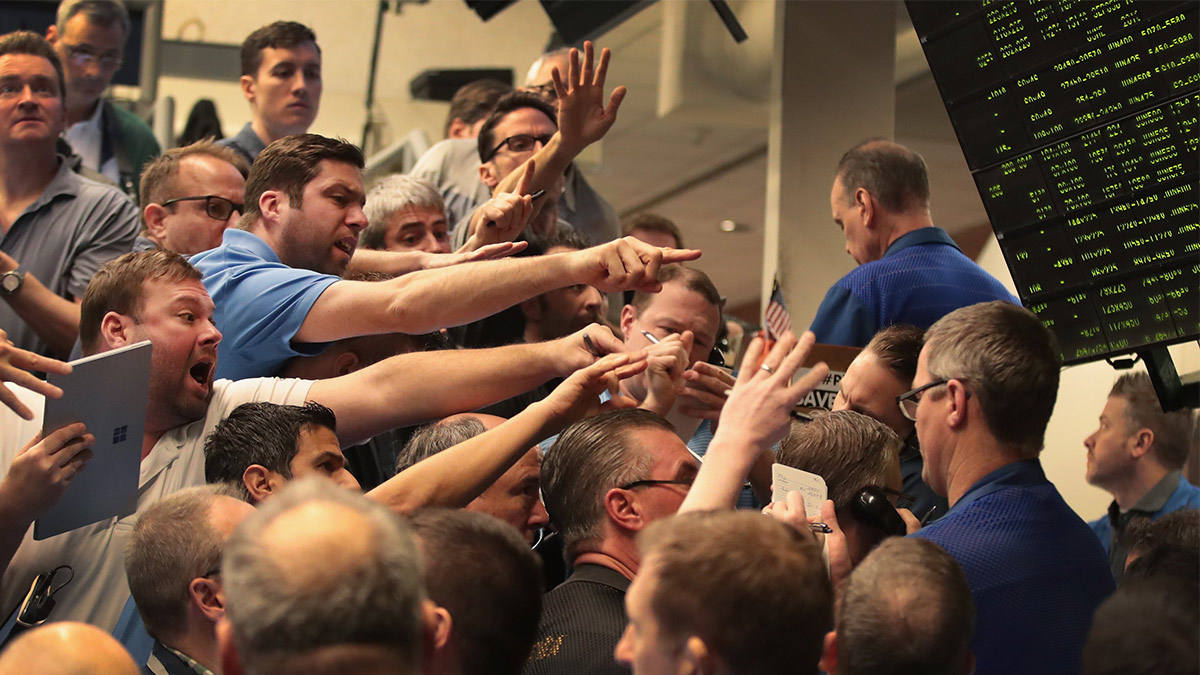Global markets on edge for contagion risk following monster US block trades

(Pic: Getty)
Global markets are on the lookout for any signs of systemic deleveraging, after some monster block trades rattled US investors on Friday night.
Equity traders at Goldman Sachs and Morgan Stanley executed five big trades, sparking a huge selldown in some marquee stocks across the US and China.
By the time they were done, around $US19bn worth of shares had been sold, wiping a collective $US33bn off the value of companies such as US media giant ViacomCBS and Chinese tech conglomerate Baidu.
Since then, reports emerged that the trades were part of a forced liquidation against Archegos Capital Management, the family office of investor Bill Hwang.
A former employee of famous hedge fund Tiger Management, Hwang’s career includes a period where he ran afoul of authorities, pleading guilty in 2012 on behalf of Tiger Asia to US charges of wirefraud.
According to a Bloomberg report, Goldman Sachs’ internal compliance procedures repeatedly crossed Hwang off the list of potential business partners due in part to his past infractions.
But as competitor banks continued to scoop huge annual fees from Hwang’s whale trades, he again became a client.
(Block trade) contagion fears
The monster block trades executed on Friday night indicate that Archegos had a problem.
By investing billions of dollars using excessive leverage, its funds were now subject to a margin call from its prime brokers.
When it couldn’t pony up the cash in time, the proverbial trip-wires were activated that in turn triggered huge block sales of its equity positions in order to meet its debt obligations.
Margin calls are a common occurrence in markets, but another clue emerged during Asian trade today that this was no ordinary margin call.
Japanese bank Nomura advised that on Friday “an event occurred” which could subject one of its US subsidiaries to losses of around $US2bn, “arising from transactions with a US client”.
Shares in Nomura, which trades on the Tokyo Stock Exchange, promptly slumped by more than 15 per cent.
Credit Suisse has also advised that the “default of a US-based hedge fund could be material” to its March quarter results.
Investors told the FT that due to the scale of leverage that Archegos used, it could mean that further trades will be required to unwind enough positions until all its calls are met.
Among the grey areas in the emerging story is that although Archegos held billions in assets (with billions more in leveraged bets tied to those assets), it may have been exempt from additional reporting disclosures due it its status as a family office.
US S&P500 futures have been edging lower in Asian trade, and a short time ago were forecasting a 0.5 per cent fall at the open.
And in the wake of the unusual activity, investors will be on the lookout for increased volatility in the week ahead.
UNLOCK INSIGHTS
Discover the untold stories of emerging ASX stocks.
Daily news and expert analysis, it's free to subscribe.
By proceeding, you confirm you understand that we handle personal information in accordance with our Privacy Policy.








